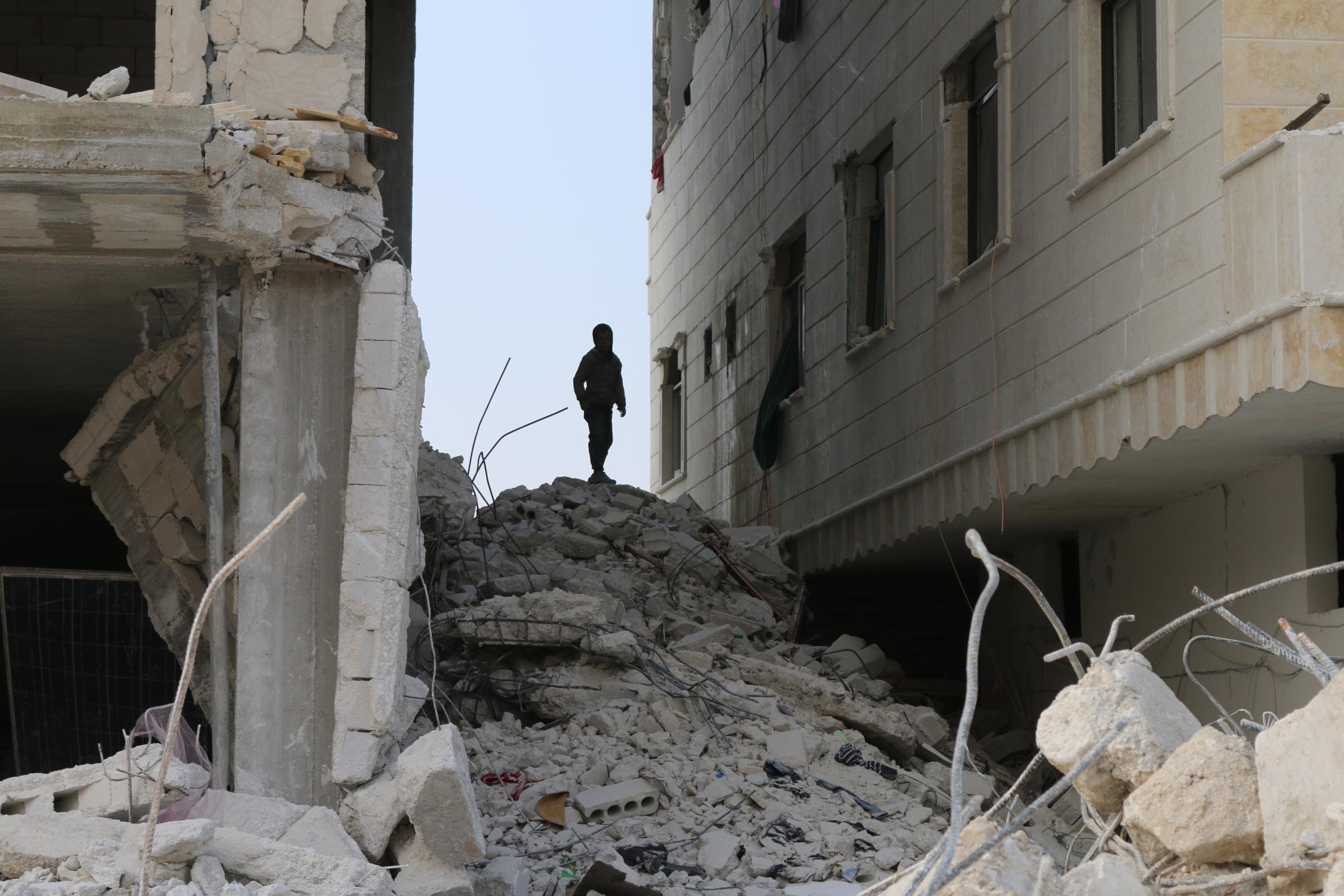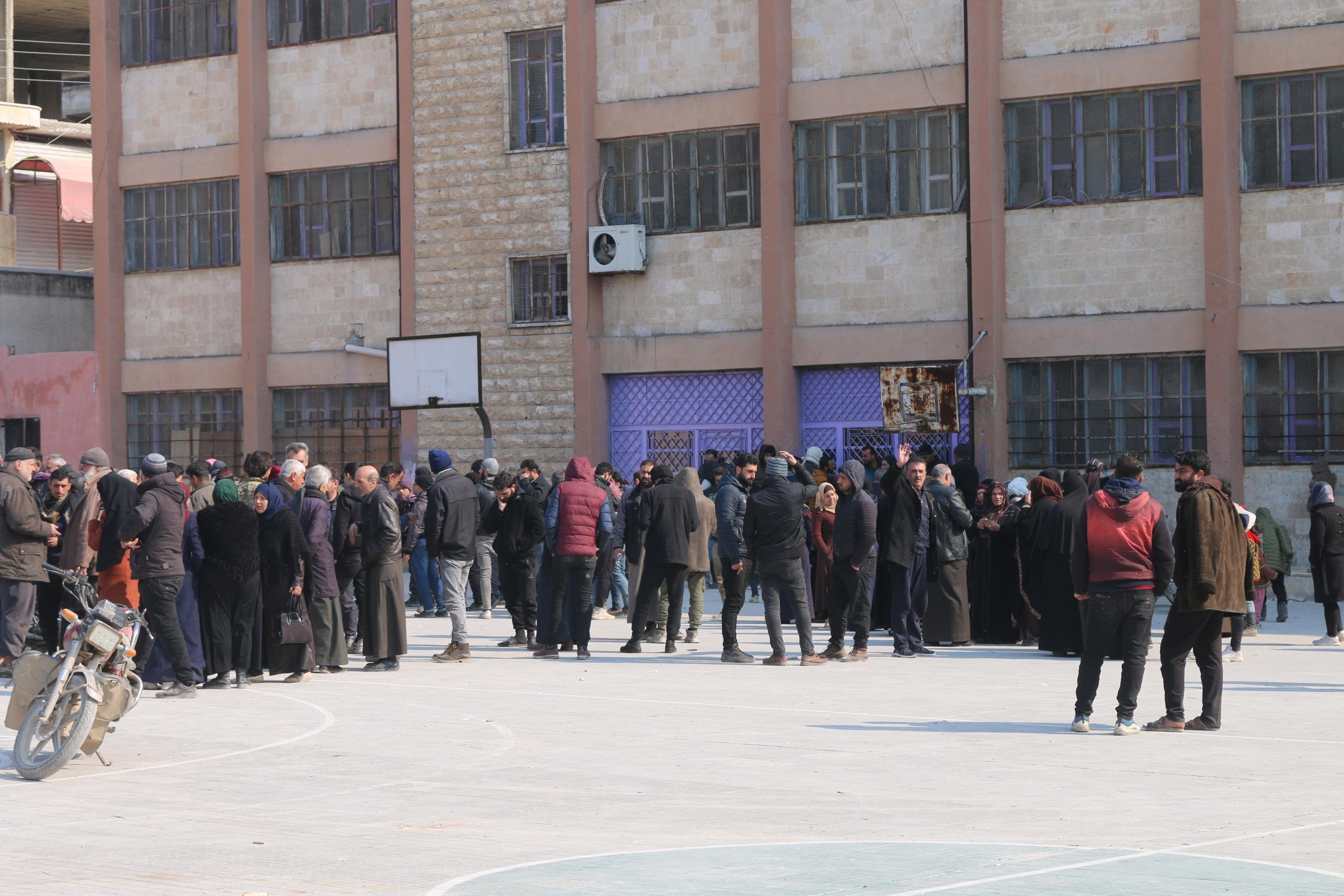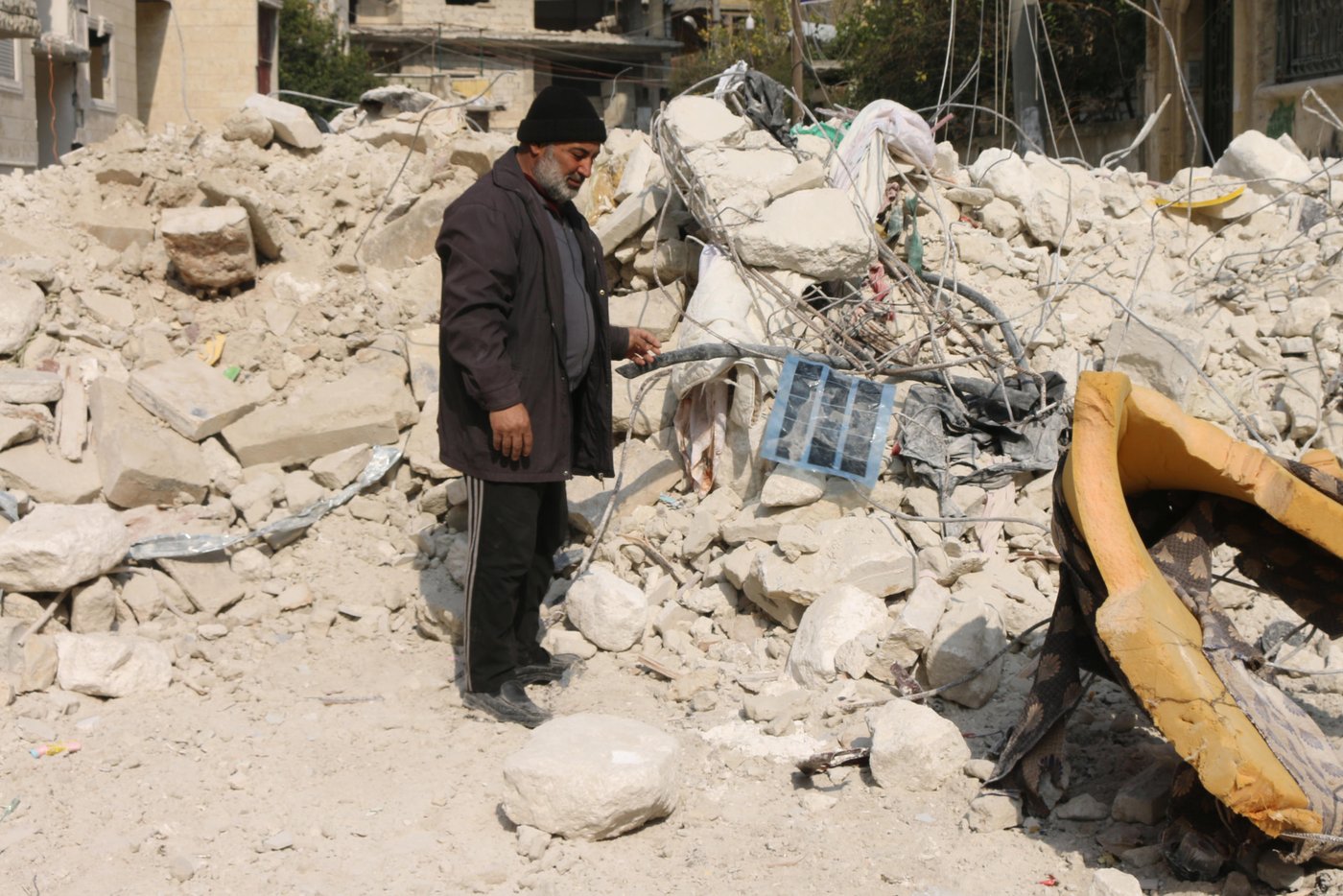On that night, Syrians in their homes and tents went to bed thinking the worst had already passed. They thought they would wake up the next morning to the same worries as every day: how to stay warm in the winter, whether to prioritise buying fuel or medicine, and how to keep the family going.
Then, just after 4.00 am, they found themselves woken up by an earthquake that would force them to run for their lives.

Terror in the night
“Catastrophe”, “disaster”, “tragedy”, “sad”, “heartbreaking”, “fear” and “terror” are just a few of the horror words with which millions reacted to the seismic event.
“It was dark, the power went out and we couldn’t see one another,” says Ziyad. “The kids were crying. It was raining heavily, and people ran out into the street terrified and almost half naked.” Ziyad’s memory of the first moments of the earthquake will stay with him for years to come.
According to a needs assessment by REACH, the earthquakes affected 133 communities in north-west Syria, forcing some 40,000 households to flee their homes. These numbers are likely to increase in the coming weeks.
Ziyad and his family ran out of the building just in time to watch it turn to rubble in front of their eyes. “Buildings started to fall one after the other, but thankfully we survived,” he says. Mosques, parks and streets were crammed with people. “Many people have died, many others have become homeless, and the kids are terrified.”

With more than 4,400 deaths and some 9,000 buildings damaged or destroyed in the area, people’s sense of gratitude at being alive is often mixed with sadness and sometimes with anger. Populations across Syria have had to grapple with an economic crisis and widespread poverty, born out of over a decade of conflict. The loss and suffering keep coming back.
A painful aftermath
The aftermath of the tragedy has not been any less painful or confusing. Ziyad and hundreds of thousands of Syrians are frustrated by the response to the earthquake. They say the world has “failed” them. Only a fraction of the required aid has arrived in north-west Syria to cover the enormous needs in this disaster-stricken area.
“Look at the people here. They need urgent aid. The only aid we have received so far is food baskets,” says Ziyad.
“People need tents and blankets. People’s homes were split open. I lost my home, and all my furniture and belongings. I have nothing left. They have given cash to some people, but others don’t get any. We are talking about thousands of people, not a hundred or two.”
In their latest assessment, REACH indicates that at least 50,000 households are in need of tents or emergency shelter.

The world must not forget
Now, the search and rescue operations have stopped, and Syrians are merely holding on to the hope of finding the remains of their family members to give them a dignified burial. Efforts are now focused on removing the rubble, opening roads, and recovering people’s valuable items, including their civil documentation and any cash, when possible.
The reality of people’s compounded suffering is unfolding before them. While emergency aid is essential to help people get through this rough period, the need for long-term programming and flexible funding is more critical than ever to allow Syrians to recover from this disaster.
“Many people are still buried under the rubble. Sixty of our neighbours have passed away,” says Ziyad. Those who were “lucky” enough to survive are wandering around, carrying the weight of their disappointment in the world, while grieving their lost loved ones, homes and hopes.
It takes the world to help communities stand back on their feet. Syrians still hope the world will not forget about them.


